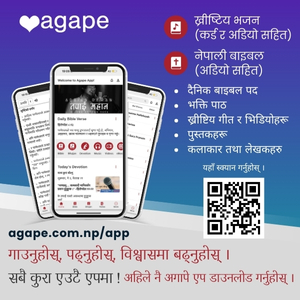Terms of Reference for Situational Analysis, Nepal
Commissioned by The Salvation Mission Nepal

Background
The Salvation Mission in Nepal was established in 2009 and has supported a range of vulnerable groups through their mission, community development projects and emergency responses. Between 2013-2019, The Salvation Mission worked with The Salvation Army United Kingdom and Ireland Territory (UKI) to implement an anti-human trafficking project that aimed to prevent and protect vulnerable women and survivors of trafficking.
In 2015, Nepal experienced severe earthquakes which has had devastating and lasting impacts on communities and more recently with the Covid-19 pandemic, thousands of people have been left financially insecure, making them prone to be a victim of modern slavery and human trafficking. As such, The Salvation Mission and UKI Territory felt this an opportune time to explore a response in Nepal that integrates emergencies and anti-human trafficking or gender-based violence. The response aspires to incorporate a preventative approach to modern slavery and human trafficking or gender based violence for communities affected by a crisis (such as the 2015 earthquakes), by providing them with necessary skills and training to be economically stable.
The Salvation Mission has commissioned a situational analysis to explore some of these issues and help understand the impacts of emergencies and the current skills and training measures in Nepal to support vulnerable communities.
Purpose
The purpose of the situational analysis is:
- To understand the current economic and market conditions in Nepal
- To acknowledge in which sectors there are currently skills shortages and a skills demand
- To explore the different vocational trainings being offered by the government and who these are being offered to
- To identify what economic opportunities are available for vulnerable groups such as survivors of gender-based violence and human trafficking
- To understand the lasting impacts of the 2015 Earthquake on local communities, within the districts identified, highlighting key areas of need within the communities.
- To have the informed knowledge to develop a project response that meets the needs of targeted communities
Scope of work
The situational analysis should explore the key research areas below using a range of methods agreed between the Consultant and The Salvation Mission. The Consultant is also expected to produce reports of the findings and undertake verbal discussions with The Salvation Mission.
Key research areas
The research should provide objective and credible information regarding:
| Research Area | Key Questions |
| Market Analysis |
|
| Vocational Education |
|
| Gender Based Violence (GBV) |
|
| Human Trafficking |
|
| 2015 Earthquake |
|
| Impact of Covid-19 |
|
| Partnership |
|
Geographical Locations
All research will focus nationally, highlighting key focuses to specific communities/ districts where relevant. The following districts will be the focus areas for this situational analysis given the lasting impact on communities from the 2015 earthquake:
- Dhading
- Kathmandu
- Ramechhap
Methodology
It is expected that the Consultant will develop a detailed methodology in collaboration with the Project Manager and The Salvation Mission that will include:
- Desk based research on contextual and theoretical analysis, current trends, government policies and market analysis
- Field visits
- Participatory techniques including focus group discussion, interviews and community conversations with target population and key stakeholders
Key Deliverables
- Presentation – this must be included as part of the application. See below requirements for the presentation.
- Verbal discussion pre-study – this is an opportunity to meet with The Salvation Mission and Salvation Army UK to discuss the situational analysis
- First draft report
- Verbal discussion on the study – this is an opportunity for The Salvation Mission and Consultant to discuss the situational analysis before the final submission of the report.
- Final report on situational analysis.
- Key recommendations on:
- Training and skills that would be most appropriate for communities affected by the 2015 earthquake
- Training and skills that would be most appropriate for survivors of trafficking or gender based violence
- To show links between Modern Slavery and Human Trafficking and disaster impact where relevant within the research conducted
- Communities or locations that would benefit from an intervention by The Salvation Mission
- Provide justification for suggested interventions based on outcome of research on Modern Slavery and Human Trafficking and the 2015 earthquake
- Organisations to approach who may be able to partner with The Salvation Mission
- Other recommendations that would be worth undertaking by The Salvation Mission
- Final verbal consultation to reflect and feedback on the study and experience
Supervision
The consultant will work under the supervision of the Projects Manager and The Salvation Mission.
Confidentiality and Data
All outputs e.g. reports, data etc. will be the property of The Salvation Mission. Consequently, the aforementioned outputs as well as any other components of the assignment must not be used or reproduced in any manner by the assigned consultant/team without prior permission from The Salvation Mission.
Timeframe
The situational analysis is expected to take 4 months, between September to December 2021.
Qualifications and experience required
The successful candidate will fulfill the following criteria:
| Qualifications: |
|
| Experience: |
|
| Other: |
|
Application Process
The Salvation Mission Nepal invites any individual or organisation interested in this assignment to submit a CV and a 1 page Cover Letter outlining knowledge, skills and experience to tsmproject15@gmail.com, no later than 12/08/2021.
Shortlisted applicants will be invited to attend an online interview. During the interview, applicants will be asked to do a presentation that should answer the following questions:
- How the applicant(s) will approach the assignment
- Methodology to be used during the assignment
- Expected timeline
- Requirement for outsourced personnel/ skills above that of the applicants
It is expected that applicant(s) hold the skills and experience required to meet all stated objectives. Where there is a need to outsource personnel, this will be the sole responsibility of the applicant and must be factored into any application prior to submission. The selected applicant (s) will be required to uphold The Salvation Mission policies, procedures and safeguarding standards.




















Discussion about this post